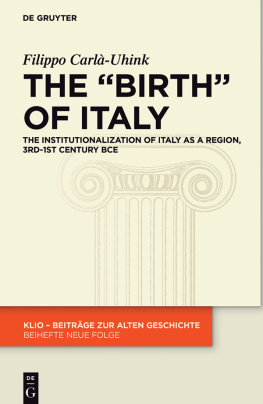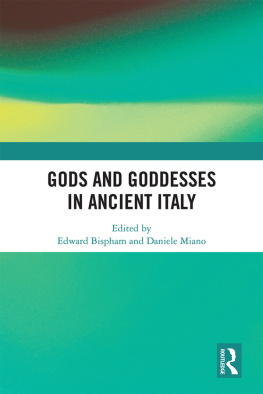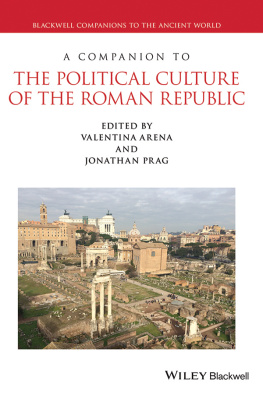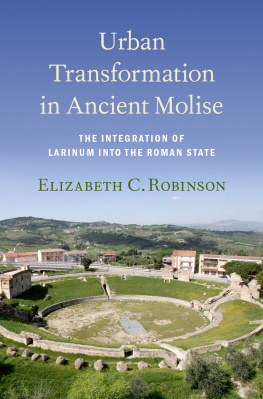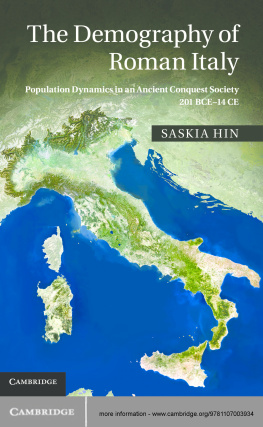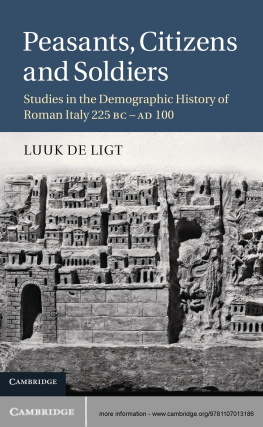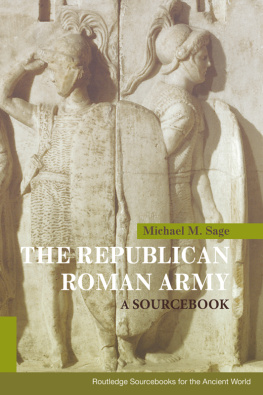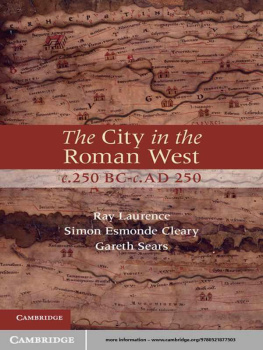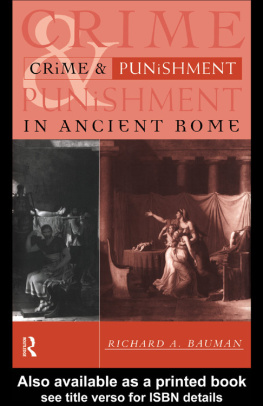THE SOCIAL WAR, 91 TO 88 BCE
For Antonia
The Social War, 91 to 88 BCE
A History of the Italian Insurgency against the Roman Republic
CHRISTOPHER J. DART
University of Melbourne, Australia
First published 2014 by Ashgate Publishing
Published 2016 by Routledge
2 Park Square, Milton Park, Abingdon, Oxon OX14 4RN
711 Third Avenue, New York, NY 10017, USA
Routledge is an imprint of the Taylor & Francis Group, an informa business
Copyright Christopher J. Dart 2014
Christopher J. Dart has asserted his right under the Copyright, Designs and Patents Act, 1988, to be identified as the author of this work.
All rights reserved. No part of this book may be reprinted or reproduced or utilised in any form or by any electronic, mechanical, or other means, now known or hereafter invented, including photocopying and recording, or in any information storage or retrieval system, without permission in writing from the publishers.
Notice:
Product or corporate names may be trademarks or registered trademarks, and are used only for identification and explanation without intent to infringe.
British Library Cataloguing in Publication Data
A catalogue record for this book is available from the British Library
The Library of Congress has cataloged the printed edition as follows:
Dart, Christopher J.
The Social War, 91 to 88 BCE : a history of the Italian insurgency against the Roman Republic / by Christopher J. Dart.
pages cm
Includes bibliographical references and index.
ISBN 978-1-4724-1676-6 (hardcover) ISBN 978-1-4724-1678-0 (ePub) 1. Rome History Social War, 9088 B.C. 2. Insurgency Italy History To 1500. 3. Italy History, Military. I. Title.
DG257.3.D37 2015
937.05dc23
2014023590
ISBN 9781472416766 (hbk)
Contents
List of Figures
Acknowledgements
The genesis of this book occurred many years ago when I was in the final stages of completing my PhD thesis under the supervision of Prof. Ronald Ridley. The concept lay dormant for several years until through many subsequent discussions with Prof. Ridley and upon the frequent encouragement of Frederik Vervaet I first began to work on this book in earnest in 2011. I have been very fortunate throughout this period to have been an Honorary Fellow of the School of Historical and Philosophical Studies at the University of Melbourne and this book would certainly not have been possible without the Universitys excellent facilities. I would like to thank all the colleagues, both here in Australia and abroad, who have generously offered their advice, sent articles, posed challenging questions for which I have endeavoured to find answers and made valuable suggestions in the course of writing this book, including Fiona Tweedie, Federico Santangelo, the late Ernst Badian and Erich Gruen. I thank the Istituto di Cultura Sicilia Australia (ICSA), which supported an enlightening visit to Italy in 2013 during which much valuable work on the manuscript was completed. I wish to thank the readers, editors and staff at Ashgate and most especially Sarah Charters, from whom I have received prompt and insightful feedback at every stage. Many thanks must go to copy-editor Lindsey Brake; those faults which remain are mine. I have had the good fortune at the University of Melbourne to be surrounded by many talented colleagues and good friends. I am particularly indebted to three: Dr Trudie Fraser, Dr Frederik Vervaet and Prof. Ronald Ridley, I have benefited immensely from their many insights, ardent backing and consistent generosity over many years. It is a well-worn trope to thank ones family but it could not be more genuinely called for than in my case. I would like to thank my family, and especially my mum Gayle and my sister Cassie; they have been eternally supportive of me. Finally, I cannot thank enough my wife Camilla and our daughter Antonia, who are a constant inspiration to me.
List of Abbreviations
The following is a list of abbreviations for modern works cited throughout this book. Ancient sources are in the main abbreviated in accordance with the conventions set out in the Oxford Classical Dictionary (4th edn), edited by S. Hornblower, A. Spawforth and E. Eidinow (2012).
|
|---|
Ascon. | Asconius commentary on Cicero, ed. A. C. Clark, Oxford: Clarendon Press, 1909 |
CIL | Corpus Inscriptionum Latinarium, ed. Th. Mommsen et al., Berlin: G. Reimer, 1869 |
ILS | Incriptiones Latinae Selectae, ed. H. Dessau (3 vols), Berlin, 18921916 |
Imag. Ital. | Imagines Italicae: A Corpus of Italic Inscriptions, ed. M. Crawford (3 vols), London: Institute of Classical Studies, 2011. |
Inscr. Ital. | Inscriptiones Italiae, ed. A. Degrassi, vol. 13.1, Rome, 1947 |
Mommsen, Hist. Rom. | Th. Mommsen, Rmische Geschichte (3 vols), Leipzig, 185455 |
Mommsen, R.St. | Th. Mommsen, Rmisches Staatsrecht (3 vols), Leipzig, 188788 |
Broughton, MRR | T. R. S. Broughton, Magistrates of the Roman Republic (2 vols), New York: American Philological Association, 195152. |
Brennan, Praetors | T. C. Brennan, The Praetorship in the Roman Republic (2 vols), New York: Oxford University Press, 2000 |
RE | Realencyclopdie der classischen Altertumswissenschaft, ed. A. Pauly, G. Wissowa, W. Kroll et al., Stuttgart: J. B. Metzler, 18931980 |
Introduction
The main fighting of the Social War lasted little more than two years but it is widely recognised, by both ancient and modern scholars alike, as having been immensely important in shaping the history of Italy in the late Republican period. The central purpose of this book is to reconstruct a history of the Social War in Italy. Where many previous works have studied the Social War as part of a broader investigation of what might be labelled Italian unification, this book seeks to reconstruct an account of the direct antecedents of the Italian insurgency in the lead-up to the Social War, to present an account of the war itself and then to discuss the ongoing resistance and unrest which occurred as a direct result of the war. There are good reasons for such an approach: the war is badly documented in ancient literary source material and not one ancient source preserves a detailed and chronological account of the Social War, which has resulted in frequent disagreements in modern works as to the sequence of events and their interconnections.
The Social War was one of the most devastating conflicts faced by the Roman Republic and one which is commonly viewed as having had lasting social and political ramifications for the Italian peoples. The war was fought against peoples in Italy who were at the time technically foreign, even though they had long histories of having served the interests of Rome. Indeed many of the ancient literary sources claim that at the heart of the war was the demand of the insurgents for inclusion within the Roman citizen body. While many modern works have to varying degrees accepted this and viewed the Social War as driven by a demand for Roman citizenship and inclusion, a number of works in recent decades have argued that the Italians sought independence from Rome. These modern arguments will be discussed in detail and contrasted with the views of ancient writers in .
Next page

